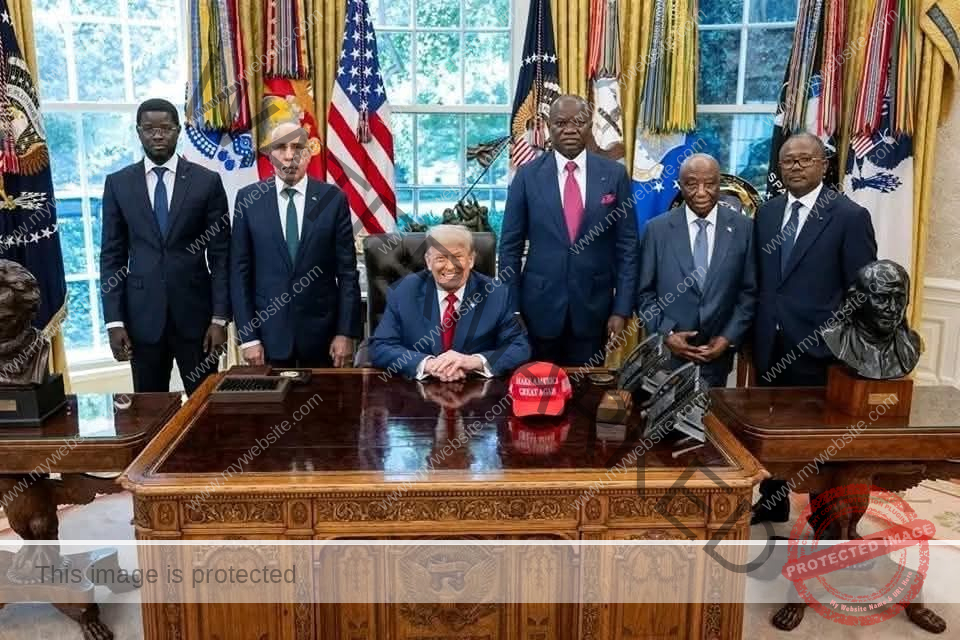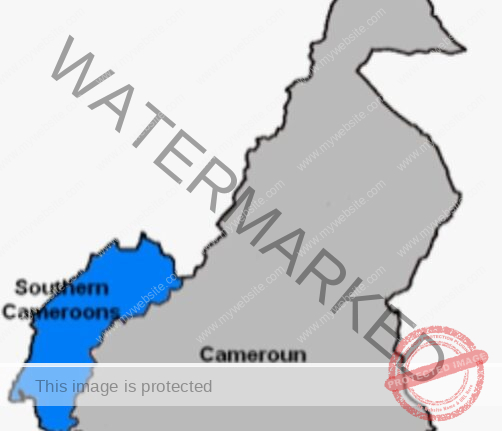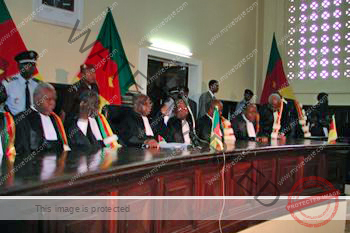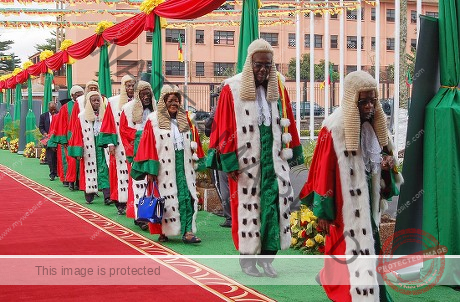President Trump (seated) surrounded by African Heads of State (standing)
July 10, 2025
Author: Ali Dan Ismael for the Editorial Desk
The recent meeting between five African heads of state and U.S. President Donald Trump at the White House has reignited debate over Africa’s posture on the global stage. A photo from the meeting—where the African presidents were all standing while Mr. Trump remained seated at the center—has been widely circulated and dissected. While such moments may be chalked up to protocol by some, they often magnify long-standing stereotypes of deference and imbalance in diplomatic relations.
This image is not just about chairs and standing positions. It strikes a deep chord in the collective African psyche. Many observers have contrasted the visibly humble appearance of these leaders abroad with their often overbearing presence at home. In Africa, presidential entourages close entire cities, motorcades are mistaken for royal parades, and citizens are expected to clear the way as though the heavens were parting. Yet, the same leaders are seen abroad being bundled into shared buses and standing like aides around a foreign dignitary.
Protocol or Power Imbalance?
It is important to acknowledge that diplomatic choreography follows long-established traditions. A visiting delegation standing while a host leader is seated may reflect nothing more than protocol. However, in the realm of international optics—where images shape perception—the symbolism is powerful and enduring.
The Danger of Symbolic Subservience
Such scenes risk reinforcing a narrative where African sovereignty appears compromised—not through coercion, but through subtle consent. When leaders of sovereign states seem diminished before former colonial or hegemonic powers, it undermines both national pride and global perception. The posture may not speak to intent, but it does speak volumes about the perceived balance of power.
Homegrown Majesty vs. Foreign Modesty
Back home, these same leaders often govern with theatrical displays of power—blocking roads, deploying state security for ceremonial show, and ruling through patronage. The paradox is glaring: humility abroad and hubris at home. This inconsistency erodes public confidence and raises serious questions about authenticity and accountability in leadership.
Foreign Dependence and Infrastructure Ironies
The comment that even the African Union’s headquarters was built as a “gift” from China captures a deeper truth. Infrastructure funded and controlled by foreign powers symbolizes a persistent dependence that cannot be ignored. African nations must invest not only in roads and buildings, but in dignity, self-determination, and independent institutions.
But Africa Is Not Without Agency
To be fair, the continent has shown moments of remarkable diplomatic initiative. The African Continental Free Trade Area (AfCFTA) represents one of the most ambitious economic integration projects in the world. In West Africa, ECOWAS has often asserted its authority to mediate political crises and uphold democratic norms.
Furthermore, African countries have taken leadership roles in global forums—whether advocating climate justice at COP summits, pushing for vaccine equity during the COVID-19 pandemic, or demanding reform at the United Nations Security Council to reflect 21st-century realities.
Leaders such as Nelson Mandela, Ellen Johnson Sirleaf, Kwame Nkrumah, and Julius Nyerere projected moral and diplomatic gravitas that transcended national borders. Even today, young African diplomats, academics, and entrepreneurs are shaping new narratives of African engagement based on confidence and capability.
A Call to Reimagine African Leadership
The notion that it would take Africa 800 years to reach Western development levels may be hyperbolic, but it reflects a widespread frustration with the continent’s developmental stagnation. The real task is not to mimic the West, but to rise above historic limitations and build an African model of prosperity, equity, and international respect.
That process must begin with dignified, strategic leadership that commands respect—not by force or extravagance, but through vision, service, and consistency both at home and abroad.
Conclusion
The meeting at the White House should not be dismissed as just another photo-op. It should challenge African leaders to reflect on how they carry the continent’s dignity in global spaces. Leadership is not about how one stands before a foreign president, but how one walks with one’s people. The future belongs not to those who pose, but to those who stand—firm, principled, and unafraid to challenge the world with a vision of Africa that commands respect.
Ali Dan Ismael editor-in-chief





















Leave feedback about this